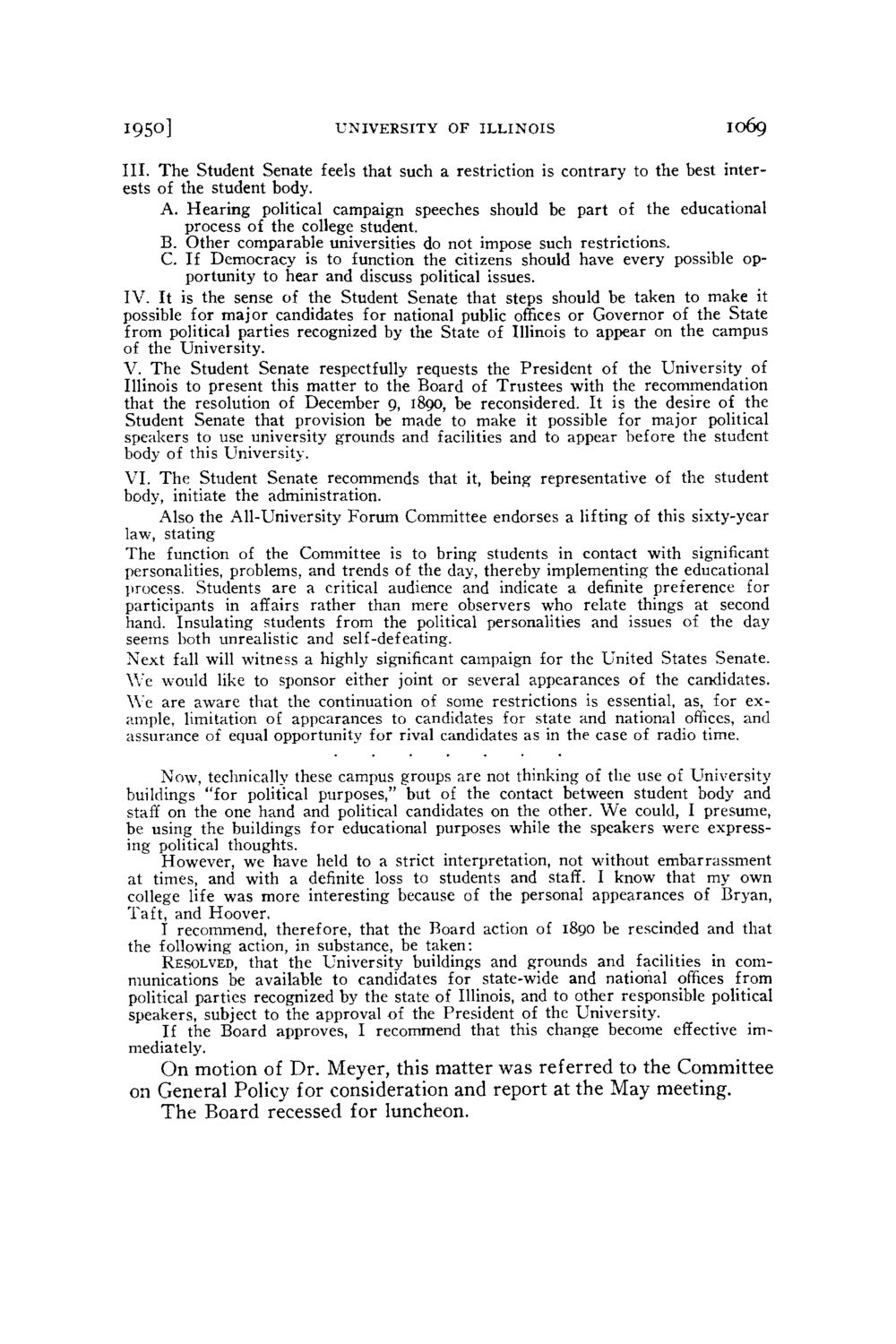| |
| |
Caption: Board of Trustees Minutes - 1950
This is a reduced-resolution page image for fast online browsing.

EXTRACTED TEXT FROM PAGE:
i95o] U N I V E R S I T Y OF I L L I N O I S IO69 I I I . The Student Senate feels that such a restriction is contrary to the best interests of the student body. A. Hearing political campaign speeches should be part of the educational process of the college student. B. Other comparable universities do not impose such restrictions. C. If Democracy is to function the citizens should have every possible opportunity to hear and discuss political issues. IV. It is the sense of the Student Senate that steps should be taken to make it possible for major candidates for national public offices or Governor of the State from political parties recognized by the State of Illinois to appear on the campus of the University. V. The Student Senate respectfully requests the President of the University of Illinois to present this matter to the Board of Trustees with the recommendation that the resolution of December 9, 1890, be reconsidered. It is the desire of the Student Senate that provision be made to make it possible for major political speakers to use university grounds and facilities and to appear before the student body of this University. VI. The Student Senate recommends that it, being representative of the student body, initiate the administration. Also the All-University Forum Committee endorses a lifting of this sixty-year law, stating The function of the Committee is to bring students in contact with significant personalities, problems, and trends of the day, thereby implementing the educational process. Students are a critical audience and indicate a definite preference for participants in affairs rather than mere observers who relate things at second hand. Insulating students from the political personalities and issues of the day seems both unrealistic and self-defeating. Next fall will witness a highly significant campaign for the United States Senate. We would like to sponsor either joint or several appearances of the candidates. We are aware that the continuation of some restrictions is essential, as, for example, limitation of appearances to candidates for state and national offices, and assurance of equal opportunity for rival candidates as in the case of radio time. Now, technically these campus groups are not thinking of the use of University buildings "for political purposes," but of the contact between student body and staff on the one hand and political candidates on the other. We could, I presume, be using the buildings for educational purposes while the speakers were expressing political thoughts. However, we have held to a strict interpretation, not without embarrassment at times, and with a definite loss to students and staff. I know that my own college life was more interesting because of the personal appearances of Bryan, Taft, and Hoover. I recommend, therefore, that the Board action of 1890 be rescinded and that the following action, in substance, be taken: RESOLVED, that the University buildings and grounds and facilities in communications be available to candidates for state-wide and national offices from political parties recognized by the state of Illinois, and to other responsible political speakers, subject to the approval of the President of the University. If the Board approves, I recommend that this change become effective immediately. On motion of Dr. Meyer, this matter was referred to the Committee on General Policy for consideration and report at the May meeting. The Board recessed for luncheon.
| |